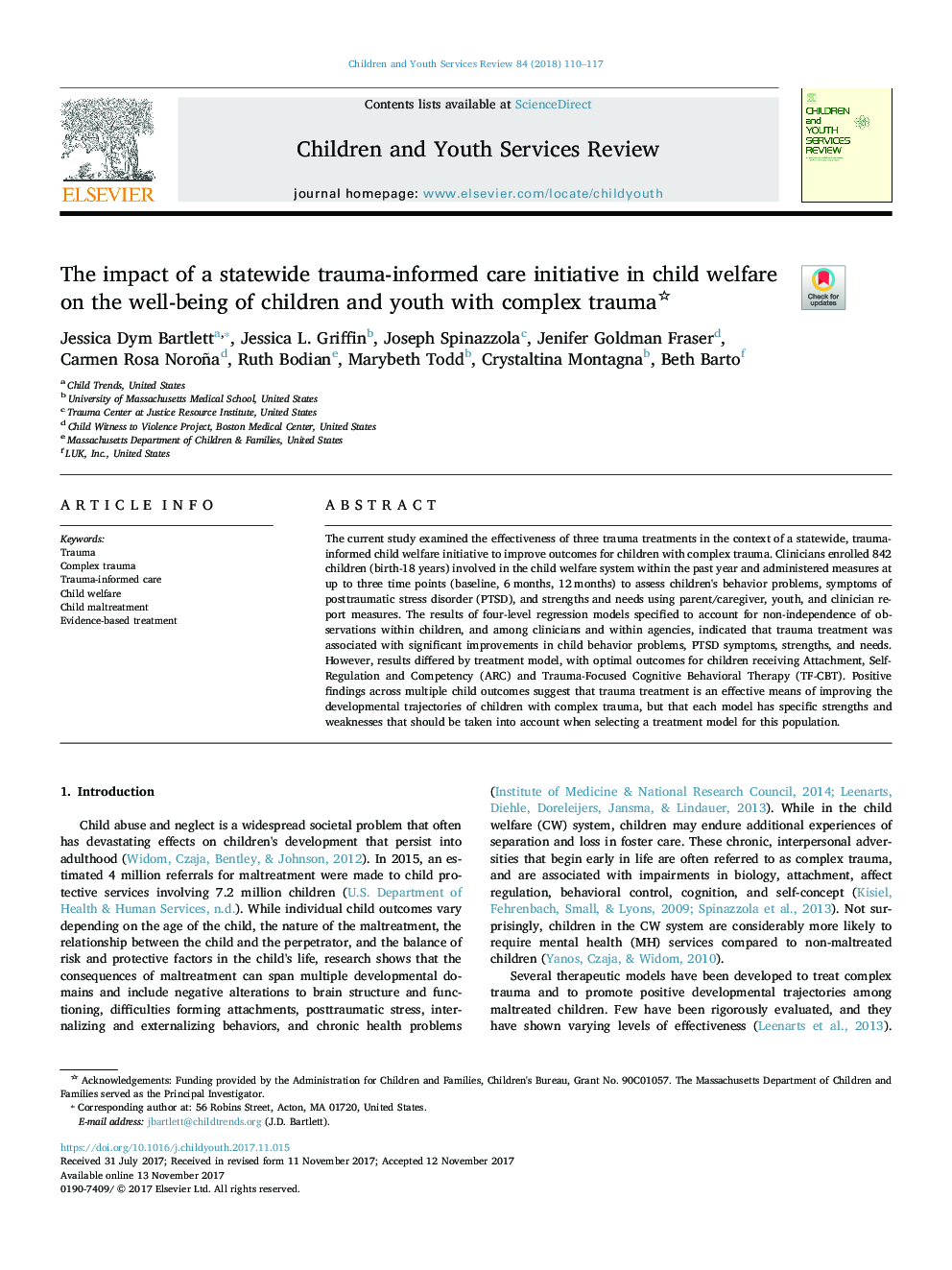| Article ID | Journal | Published Year | Pages | File Type |
|---|---|---|---|---|
| 6833483 | Children and Youth Services Review | 2018 | 8 Pages |
Abstract
The current study examined the effectiveness of three trauma treatments in the context of a statewide, trauma-informed child welfare initiative to improve outcomes for children with complex trauma. Clinicians enrolled 842 children (birth-18Â years) involved in the child welfare system within the past year and administered measures at up to three time points (baseline, 6Â months, 12Â months) to assess children's behavior problems, symptoms of posttraumatic stress disorder (PTSD), and strengths and needs using parent/caregiver, youth, and clinician report measures. The results of four-level regression models specified to account for non-independence of observations within children, and among clinicians and within agencies, indicated that trauma treatment was associated with significant improvements in child behavior problems, PTSD symptoms, strengths, and needs. However, results differed by treatment model, with optimal outcomes for children receiving Attachment, Self-Regulation and Competency (ARC) and Trauma-Focused Cognitive Behavioral Therapy (TF-CBT). Positive findings across multiple child outcomes suggest that trauma treatment is an effective means of improving the developmental trajectories of children with complex trauma, but that each model has specific strengths and weaknesses that should be taken into account when selecting a treatment model for this population.
Keywords
Related Topics
Health Sciences
Medicine and Dentistry
Perinatology, Pediatrics and Child Health
Authors
Jessica Dym Bartlett, Jessica L. Griffin, Joseph Spinazzola, Jenifer Goldman Fraser, Carmen Rosa Noroña, Ruth Bodian, Marybeth Todd, Crystaltina Montagna, Beth Barto,
